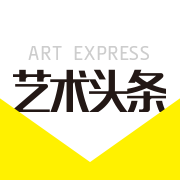
Ben Rivers on Winning the EYE Art and Film Prize 2016
2016-04-08 09:28:57 未知
London-based artist BEN RIVERS has been announced as the winner of the EYE Art & Film Prize 2016, receiving a £25,000 GBP prize to fund the making of new work. Created in 2015 by the Dutch film museum EYE and the Paddy & Joan Leigh Fermor Arts Fund, the EYE Prize “aims to support and promote an artist or filmmaker whose work has contributed to the developments in the field between art and film in a remarkable manner.”
Born in 1972 in Somerset, England, Rivers studied Fine Art at Falmouth School of Art where he started in sculpture before moving into photography and super8 film. Taking the raw film footage as his point of departure, Rivers creates works that “tread a line between documentary and fiction,” with key themes including people who have in some way separated themselves from society and alternative existences in marginal worlds.
On behalf of the Jury, Sandra den Hamer, CEO of the EYE Filmmuseum and chair of the EYE Art & Film Prize, said: “BEN RIVERS is one of the new strong voices of his generation, where boundaries between cinema and the other arts no longer exist. In his visually stunning work, he shows his engagement with today's society. BEN RIVERS has a poetic eye, which makes him an elegant and sensitive observer of life and nature.”
In 2018, EYE will present an exhibition of the first three Prize Winners’ work in Amsterdam.
To find out more about his practice and sources of inspiration, BLOUIN ARTINFO spoke to Rivers and asked him a few questions.
The Eye Prize aims to support and promote an artist or filmmaker whose work has contributed to the developments in the field between visual arts and film. In what ways does your practice connect and bridge the two?
Visual arts and cinema are intrinsically linked. I initially went to art school at 16 so that I could make prosthetics and other special effects for films, but then discovered art. As I continued at art school I started a film club, then continued running a small cinema with friends for ten years afterwards, while developing as an artist. So I see no hierarchy between the two ways of working. The experience of showing in a film festival is very different to showing in a gallery or museum, both come with different audience expectations, and I like to play with these expectations.
Your work is described as treading a between documentary and fiction. Could you explain what is meant by this and how it is visible in your work?
I simply make films the way that seems right to me, often using a mix of observational filming combined with more constructed filming, but in the end everything is constructed in the editing, so things get blurred. There is always a tendency to try and box things, and if something can’t be boxed then it then supposedly treads a fine line between things. I have always been interested in all types of filmmaking, from experimental film, through classic Hollywood to trash exploitation and everything in between – this has influenced my work, which consciously or unconsciously draws on this mish-mash, so I think that makes the films had to pin down to one thing in particular.
Some of the key themes in your work are people who have in some way separated themselves from society and the imagining of alternative existences in marginal worlds. What are you primary sources of inspiration and motivation and how are they manifested in your work?
My brain and all the junk in it is the main source of my motivation, obsessive ideas return during a walk, reading a book, talking to someone, an accident, it never turns off. Making work is trying to make sense of the obsessive ideas in your head, to maybe neaten them so that they are communicable to other people. My way of doing this is with films, because I think I do this better than with other means, like answering questions.
The Eye Prize is £25,000 GBP to fund the making of new work. What do you plan to create with the £25,000 GBP prize?
I have an idea but I don’t want to say it out loud yet because I am superstitious and don’t want to jinx it.
What do you aim to convey and express with your work and how do the different tools, equipment, and modes of creation that you work with define and charaterise your work?
If I could pin this down to a pithy statement I don’t think I could continue. Making work is a way through the world, trying to understand it in a way, and make something new from it.
(责任编辑:张天宇)
注:本站上发表的所有内容,均为原作者的观点,不代表雅昌艺术网的立场,也不代表雅昌艺术网的价值判断。

 阿拉里奥画廊上海转型:为何要成为策展式艺术商业综合体?
阿拉里奥画廊上海转型:为何要成为策展式艺术商业综合体? 吕晓:北京画院两个中心十年 跨学科带来齐白石研究新突破
吕晓:北京画院两个中心十年 跨学科带来齐白石研究新突破 翟莫梵:绘画少年的广阔天空
翟莫梵:绘画少年的广阔天空 OCAT上海馆:参与构建上海艺术生态的十年
OCAT上海馆:参与构建上海艺术生态的十年
全部评论 (0)